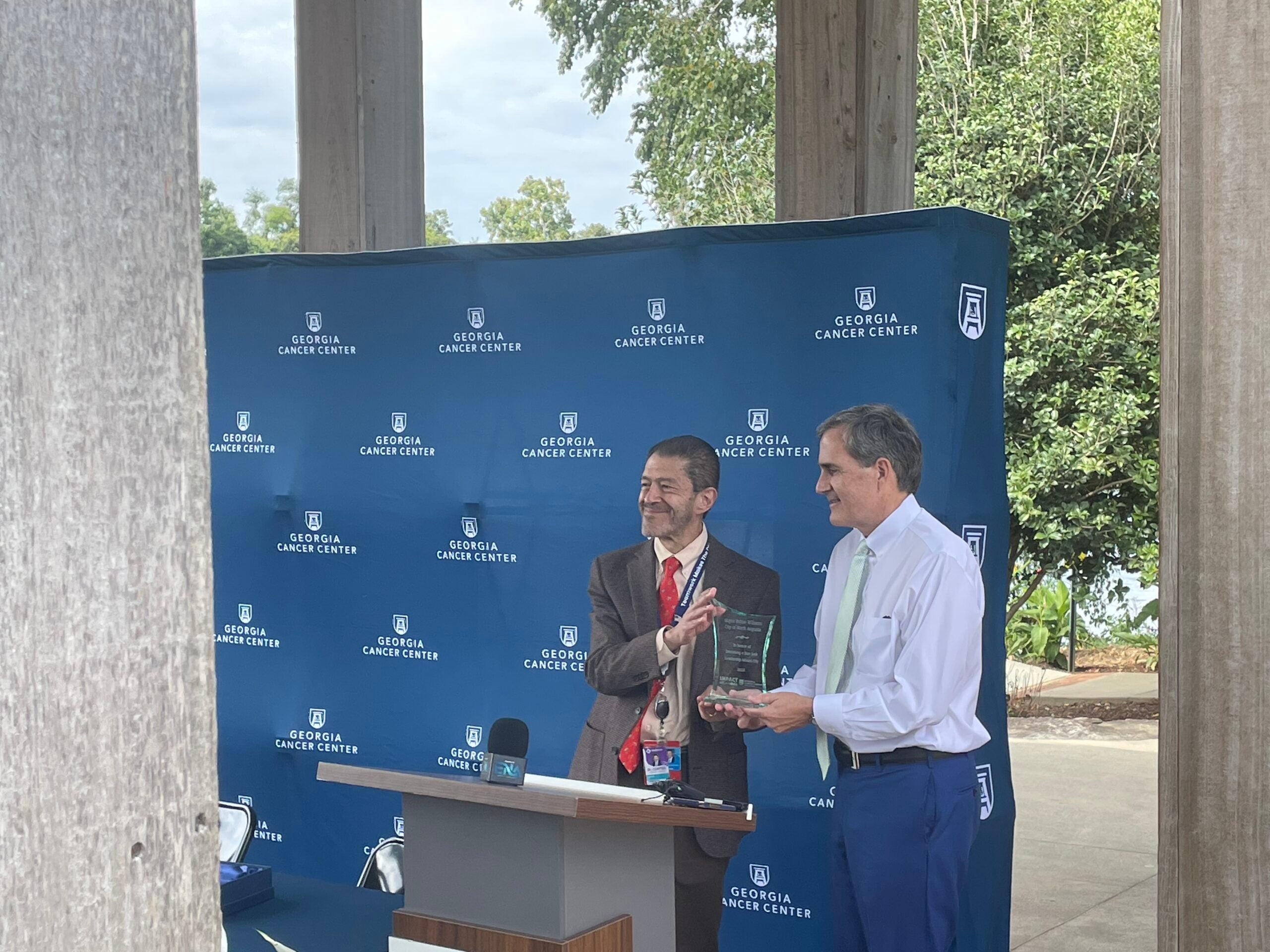Locals strolling North Augusta’s Greenway will have a little extra protection from the sun thanks to a new project from the Georgia Cancer Center.
North Augusta Mayor Briton Williams joined the Georgia Cancer Center (GCC) and other city leaders at Boeckh Park, Monday morning, to celebrate the installation of a series of sunscreen dispensers throughout the park, an expansion of the Cancer Center’s Sun Safe Augusta: Safeguarding Skin Health with Sun Safety Education and Public Sunscreen Access initiative.
Earlier this year, the Sun Safe joined IMPACT (Improving Melanoma Prevention through Awareness, Care and Teaching) Melanoma, a nonprofit devoted to reducing the cancer, to launch Practice Safe Skin, a program that aims to combat the increase of skin cancer, particularly melanoma — the second most common cancer among those aged 15 to 29 — by making sun protection free and available to the public.
Sun Safe installed five sunscreen dispensing stations along the Augusta Canal in May. On Monday, the Sun Safe team premiered the expansion of this program across the river, cutting the ribbon at the first what will be some 90 permanent sunscreen stations in North Augusta.
“We are not just making sunscreen available. We are making sun safety part of our everyday culture,” said Maryclaire Regan, community outreach coordinator with the GCC.
The intention for the Sun Safe program was to place the dispensers in areas with high traffic, said Dr. Brenda Santellano, a researcher at GCC and one of the coordinators of the program. She also acknowledged that ingredients in some sunscreens are controversial, such as those with endocrine-disrupting chemicals. The skin protection in the new public dispensers do not have these chemicals, she noted, while underscoring the fact that as unsettling as melanoma statistics are, it is highly avertible.
“I can tell you, in my experience as a doctor, as someone with family who is a patient with skin cancer, it’s 100% preventable,” said Santellano. “And it’s not only applying something when you leave your place, it’s reapplying several times, at least every four hours if you’re doing, like, regular activities, or every two hours if you’re like, sweating or running.”
Skyler Q. Andrews is a staff reporter covering business for The Augusta Press. Reach him at skyler@theaugustapress.com.









